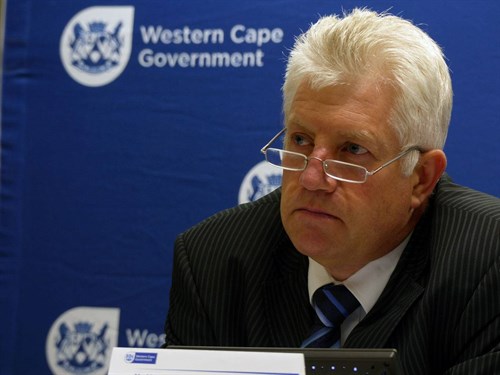Western Cape Premier Alan Winde says the number of healthcare workers infected with COVID-19 has continued to drop “sharply” in the province.
This, he said, pointed to the positive impact of vaccines.
“In December 2020, during the height of the second wave, over 1 971 healthcare workers were infected with the virus. This dropped to its lowest level since the pandemic started in March last year, with just 38 infections last month,” said Winde.
He added: “One week into the month of April, and there have been just 2 infections amongst healthcare workers so far, bringing the current number of active cases among healthcare workers to just 16.”
He said that thousands of healthcare workers had been vaccinated in the Western Cape so far.
1/2 Update on the coronavirus and vaccines
As of 1pm on 12 April, the Western Cape has 2188 active Covid-19 infections with a total of 281 535 confirmed Covid-19 cases and 267 838 recoveries.
Statement: https://t.co/rAyk4mKlB1 pic.twitter.com/XQe8xhXDiD
— Premier Alan Winde (@alanwinde) April 12, 2021
As of 1pm on 8 April, the Western Cape had 2 195 active Covid-19 infections with a total of 281 024 confirmed Covid-19 cases and 267 363 recoveries.
A total of 52 202 out of the 53 820 vaccines received to date as part of the Sisonke trial, had been administered by 5pm on 7 April.
Meanwhile, President Cyril Ramaphosa has called for African-made vaccines, as the continent continued to lag behind other global regions in inoculating against COVID-19.
According to News24, Ramaphosa said Africa needed the skills and capacity to manufacture its own vaccines.
Slow pace of vaccinations
“Africa needs to harness its own continental capabilities and identify opportunities for collaboration across … countries,” he said.
Ramaphosa said this during a conference on vaccine production organised by the Africa Centres for Disease Control and Prevention (Africa CDC).
Africa has been the region least affected by the pandemic, with 4.35 million cases and 115 000 deaths among an overall population of 1.2 billion, according to the latest figures from Africa CDC.
But its slow pace of vaccinations has been blamed on inadequate supplies, lack of financing and logistical problems, an AFP report said.
PICTURE: Cape Town etc gallery

